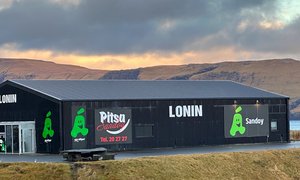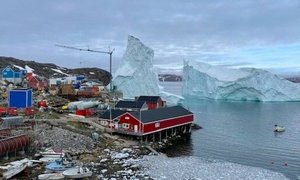JEREMY CRESSWELL
Short of heading for West Africa, the greatest successes are currently being scored in the NW African state of Mauritania while, on the west side, the Canadian quest plods along unspectacularly, but is delivering modest results.
There is no doubt about where the exploration dollars are being spent ? West Africa. With success rates better than 80% offshore Angola and well above the one in three average offshore Equatorial Guinea and deepwater Nigeria, it is hardly surprising that the North-west European effort is so low key.
And, as rigs gradually but inexorably migrate out of the North Sea, the more difficult it is likely to become in terms of securing drilling tonnage suitable to successfully drill west of the Norway, Scotland/Shetland and Ireland. There is mounting concern both in the UK and Norway with regard to this.
That so little data has made it into the public domain does not help. If Australian Stock Exchange (ASX) disclosure rules applied in the UK, Oslo, France and Italy especially, then companies would be obliged to release a great deal more data than has been made available.
It would be more difficult to shroud a well in mystery for years on end ? tight hole status ? than is customarily the case, especially in British waters.
We can look to Mauritania for an excellent example of how ASX rules are working in favour of the wider interest. The Woodside-led consortium that has in quick succession made the Chinguetti, Banda and Tiof oil discoveries was obliged to disclose not just the discoveries but also to file drilling reports.
In that consortium is Italian group ENI, which has said little about the Mauritania programme. It?s English language website press listing has a statement about the initial Chinguetti discovery in 2001, but there has been nothing obvious since.
Of course, not being forced to disclose helps the companies insofar as they can hide failures when it suits them strategically, at least for a while. In the case of the UK effort, the writer?s opinion is that such secrecy has not been helpful, even though the Department of Trade & Industry is doubtless kept informed.
Just two UK sector exploration wells have been drilled this year - 204/17-1 by ChevronTexaco and 219/21-1 (Ben Nevis) by Shell. Both are ?tight?.
No such problem with the Faroese. At least we are clear about which of the wells to date have essentially failed ? all but the Marjan probe drilled by Amerada Hess.
The failure of the only well drilled during the 2003 season, the ENI-operated 6004/17-1 Marimas probe is a serious blow, especially since geological modelling suggested this was perhaps the hottest Round One block.
For minority interest holder, Faroe Petroleum, which this year floated on the UK?s alternative investment market (AIM), the news from Marimas was awful, even though CEO Graham Stewart shrugged it off at the time.
The expression, "good reservoir quality sandstones were encountered", was used to describe Marimas. How often have we heard something similar, such as with the Assynt well drilled in the UK sector in 2001 by BP. Anecdotally, this encountered ?buckets of sand?.
The situation then went from bad to worse for Stewart, when ENI decided against disposing of its interests in the UK west of Shetland Laggan and Suilven licences to Faroe Petroleum.
The company?s strategy at the outset was to concentrate west of Shetland and it is currently pursuing further opportunities in the area, including licence bids. It will be interesting to see whether pragmatism prevails and other, easier pickings are pursued, perhaps in the North Sea itself.
Offshore Ireland is in many ways comparable to the Faroes. There, the same old miserably slow trudge drags on, not least the battle to get Corrib onstream. This heritage Enterprise, now Shell development has literally become bogged down over a bog-related planning row.
It is about where to locate the shore-side gas-handling terminal. The authorities rejected the proposed North Mayo plan in May this year.
Corrib was to have been brought onstream during H2 2005, but 2006 seems more realistic. The field lies 70km offshore; its reserves are some 25 billion cu.m of gas.
As for the Irish exploration effort, there are conflicting reports about the Dooish discovery. Is it potentially commercial or is it not? That is the question being asked in the wake of conflicting reports.
The 12/2-1z Rockall Basin well drilled last year appeared to encounter a significant oil column. The Department of Communications, Marine and Natural Resources said in October 2003 that a "substantial column of hydrocarbons" had been encountered.
So the semi-submersible Jack Bates returned in May to re-enter the well. While further hydrocarbons were found, Shell was guarded in its comments, saying that the well had not been tested.
The oil industry grapevine suggested that Dooish might be a flop.
But that conflicts with the political view that Dooish could be worth more than 10billion euros to the Irish economy. It prompted the political party Sinn Féin to pile pressure on the current Dublin administration to ensure Ireland benefited and not just Shell.
"At the present time, such a find would be of almost no benefit to the people of Ireland. I say this because of the scandalous conditions that apply to multi-national exploration companies such as Shell who operate here,? said a Sinn Fein deputy Martin Ferris.
?Almost uniquely in the world, this Government has no stake in any oil or gas find, and the companies pay no royalties. When one looks at the benefits which have accrued to states like Norway which have maintained some control, the differences are stark.?
In a question and answer session in the Irish Parliament on October 7, Minister for Communications, Marine and Natural Resources (Mr. D. Ahern) said: ?Further technical work on the prospect will be required before the size of the gas condensate accumulation and the possibility for any commercial development can be accurately assessed.
?However, it is extremely encouraging that this well, only the second to be drilled in the Rockall Basin, proved to be such a significant discovery, and my Department has emphasised the positive implications of this discovery for the prospectivity of the basin as a whole.?
Good news for Faroe? Perhaps.
In June, Statoil said it was to have another go at drilling west of Ireland. The target was the Cong prospect, which is located in the Erris Basin, 45km northwest of Mayo. The well was to have been spudded in late July and take just over two months to complete. Drilling started on August 5, some 20km northeast of Corrib. Nothing has been disclosed since.
Operator Statoil has a 40%interest in Cong. Its co-venturers are Shell via Enterprise (45%) and Murphy Ireland Offshore (15%).
Statoil last drilled offshore Ireland on the Sarsfield prospect in the Porcupine Basin in 2001. But it was a duster. Prior to that, in the late 1990's, the company participated in the Connemara field appraisal programme. It too was a failure.
Meanwhile, Shetland a few days ago celebrated 25 years of Sullom Voe oil terminal, and is hopeful of being able to celebrate 40, even 50 years. But that depends on various factors, not least whether much else is found on the UK Atlantic Frontier, White Zone and closer to the Faroes.
But will this part of the Atlantic Frontier ever become a happy hunting ground for Big Oil? The jury is out.














